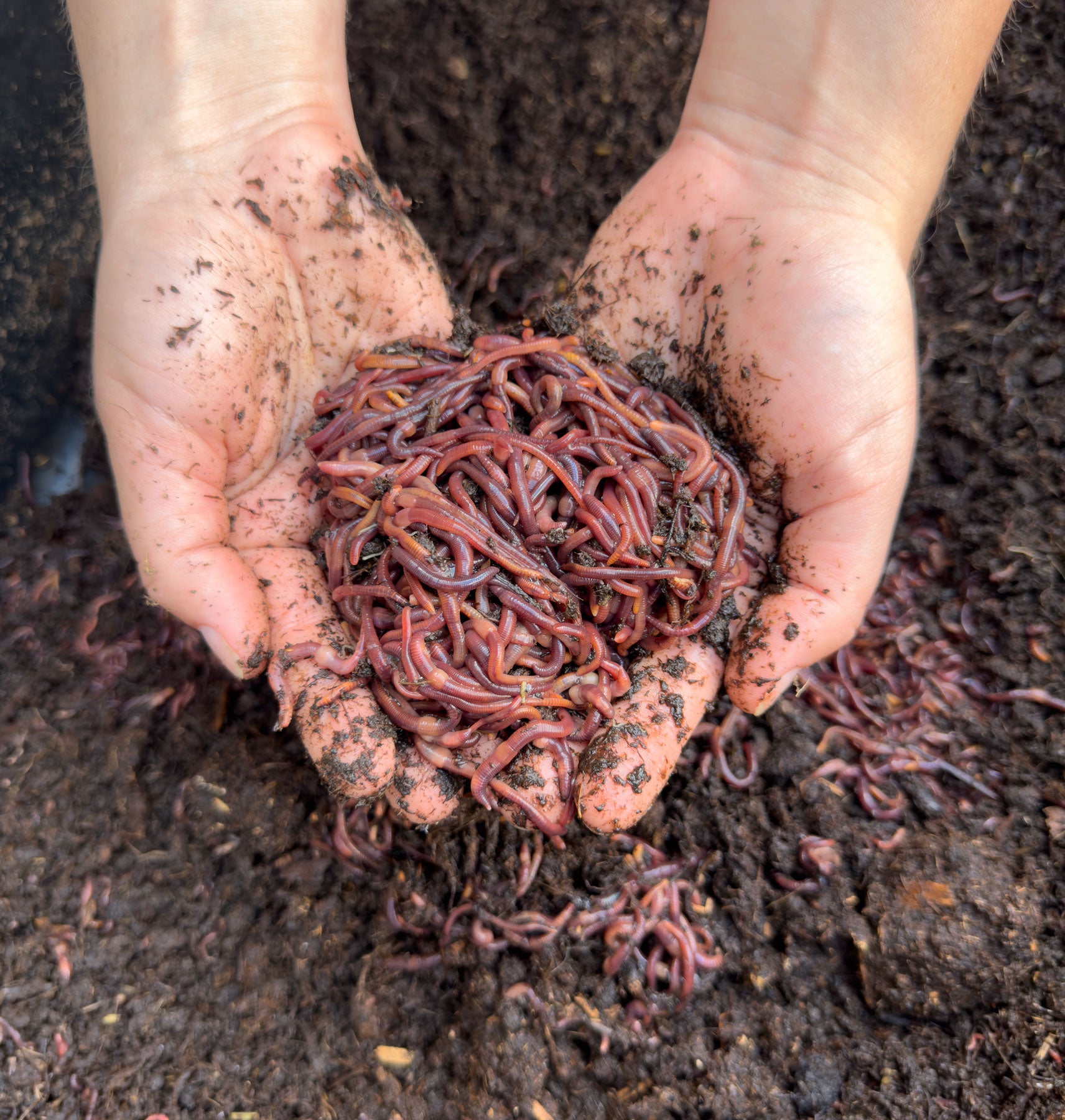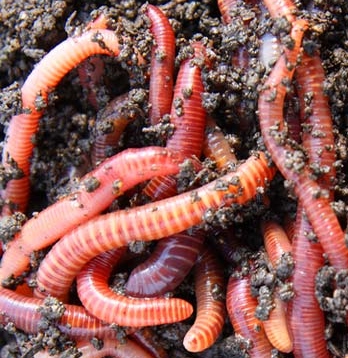Why Red Wiggler Composting is the most effective Choice for Eco-Friendly Horticulture
Why Red Wiggler Composting is the most effective Choice for Eco-Friendly Horticulture
Blog Article
Discovering the Mechanisms of Red Wiggler Composting: A Comprehensive Overview to the Refine and Its Positive Influence On Lasting Gardening Practices
The intricate devices of red wiggler composting, making use of the one-of-a-kind physiology of Eisenia fetida, provide a compelling method for improving sustainable horticulture practices. As urban gardening gains grip, recognizing the nuances of this composting technique becomes progressively appropriate.
Understanding Red Wigglers
Red wigglers, clinically called Eisenia fetida, are a types of earthworm highly related to for their effectiveness in composting organic waste. These worms prosper in nutrient-rich environments, specifically in rotting organic issue, making them ideal for vermicomposting systems - Red Wiggler Composting. Defined by their reddish-brown coloration and segmented bodies, red wigglers are smaller sized than usual earthworms, typically determining in between three to four inches in size
Their unique physiological characteristics enhance their composting capacities; for example, they possess a high reproductive rate, permitting populations to multiply rapidly under ideal conditions. Red wigglers consume organic product, simplifying through their digestion systems, which results in nutrient-rich spreadings that act as an outstanding organic plant food. Their ravenous appetite allows them to process large quantities of food waste efficiently, significantly decreasing garbage dump payments.
Along with their composting expertise, red wigglers play an essential duty in soil health. Red Wiggler Composting. They freshen the soil and facilitate the decay of natural matter, further improving the soil community. Understanding the qualities and ecological benefits of red wigglers is vital for any person looking to carry out lasting horticulture practices with efficient composting techniques
The Composting Refine
The composting procedure involves breaking down organic materials into nutrient-rich garden compost, a task that red wigglers succeed at as a result of their specialized digestive systems. These worms consume food scraps, yard waste, and other raw material, transforming them into valuable compost through a series of chemical and organic processes.
At first, the raw material is blended with bedding materials such as shredded paper or dried leaves, creating an optimal setting for the worms. As the red wigglers consume this mixture, they damage it down via their intestine, where microbes additionally decompose the material. This procedure produces warm, promoting microbial activity, which accelerates decomposition.

Benefits of Red Wiggler Composting
Eco-conscious people and many garden enthusiasts recognize the numerous advantages of red wiggler composting, making it a popular selection for effective waste monitoring. One of the primary advantages is its ability to substantially decrease natural waste in landfills - Red Wiggler Composting. Red wigglers successfully break down cooking area scraps and other naturally degradable products, transforming them right into nutrient-rich vermicompost that enhances dirt wellness
Furthermore, red wiggler composting improves soil structure and fertility. The resulting vermicompost is including useful microbes, which promote plant development and improve nutrient retention. This natural plant food not just supports sustainable horticulture practices however additionally reduces reliance on chemical plant foods, fostering a healthier environment.
In addition, red wiggler composting is a space-efficient method, making it optimal for urban garden enthusiasts with minimal room. The process can be conducted inside your home or outdoors, enabling year-round composting despite climate conditions. Red wigglers are low-maintenance organisms that require very little treatment, making them look at this website obtainable for amateur garden enthusiasts.
Fundamentally, the benefits of red wiggler composting prolong past waste decrease; they add to much healthier dirts, lasting horticulture techniques, and ecological stewardship, placing it as an important method in contemporary gardening.
Finest Practices for Composting
For read the article effective red wiggler composting, adhering to finest practices is crucial to make best use of efficiency and make certain an efficient setting for these worms. This balance advertises optimal decay and enhances the worms' health and wellness.
Next, screen dampness levels, aiming for a damp, sponge-like consistency. Extremely wet problems can lead to anaerobic decay, while excessive dryness might hinder worm task. In addition, make certain appropriate oygenation by turning the garden compost regularly, which assists stop compaction and allows for appropriate oxygen circulation.
Temperature is one more essential variable. Maintain a variety of 55 ° F to 77 ° F(13 ° C to 25 ° C) to advertise worm task and microbial growth. Avoid presenting meat, milk, and oily foods, as these can attract insects and produce odors.
Enhancing Sustainable Horticulture
Lasting horticulture symbolizes a holistic approach that harmonizes ecological principles with useful horticulture strategies. By including methods such as red wiggler composting, garden enthusiasts can dramatically boost their techniques, cultivating a have a peek at this website much more resistant ecological community. Red wigglers, renowned for their reliable decomposition abilities, convert organic waste right into nutrient-rich garden compost, therefore enriching the soil without depending on chemical fertilizers.
Implementing sustainable horticulture methods, such as crop turning, buddy planting, and mulching, further complements the advantages of composting. These techniques not just enhance soil structure and fertility but additionally advertise biodiversity, bring in valuable pests and microorganisms that add to plant health. Utilizing indigenous plants can minimize water intake and reduce maintenance, straightening with water preservation efforts.

Conclusion
In conclusion, red wiggler composting represents an essential approach for boosting lasting horticulture practices. Eventually, the adoption of red wiggler composting can dramatically contribute to environment-friendly gardening, benefitting both city and beginner gardeners in their cultivation initiatives.
The intricate mechanisms of red wiggler composting, making use of the special physiology of Eisenia fetida, present a compelling method for improving lasting horticulture techniques. Understanding the attributes and environmental benefits of red wigglers is necessary for any individual looking to carry out sustainable horticulture methods with efficient composting methods.

In final thought, red wiggler composting stands for a crucial technique for enhancing lasting gardening practices. Inevitably, the fostering of red wiggler composting can considerably add to environmentally friendly gardening, profiting both urban and amateur gardeners in their cultivation initiatives.
Report this page